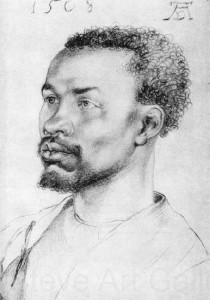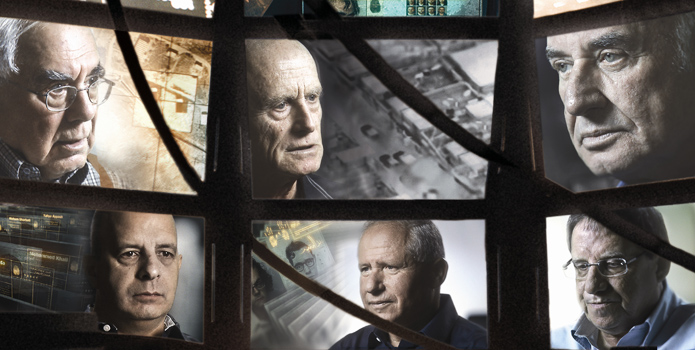My sixth film was State 194, a film about Palestine’s attempt to be recognized as the 194th state in the United Nations. The film follows a number of different people — Palestinian bloggers, Israeli pro-Palestinian activists, and several other — but the most visible subject of the film is the PA Prime Minister, Salam Fayyad. Fayyad outlines his goal: ironically, to follow the same path to statehood that Israel followed. He worked to build the apparatuses of a Palestinian state, and then approach the UN say, “look at us; surely you can see that we’re a state!”
Politics in Wisconsin
I’m always surprised to see Wisconsin show up as borderline in electoral vote poll-tracking sites. Admittedly, I really only hang out in Madison (and, really, mostly in WisCon), but I always have an impression of it as a nice lefty haven of the American mid-west.
Film Festival Film #5: Krivina
I wish I could say that I liked Krivina more than I did. It has a lot going for it: a Bosnian living in Toronto returns after he hears reports that a friend of his, Dido, is wanted for war profiteering. He spends his time going from old address to old address, Dido’s relative to next relative. There’s almost a Godot-like quality, but rather than being a study of waiting, and life on hold, the overriding feeling is one of trauma and PTSD.
It’s a slow, languorous piece and I confess that I was impatient with it at times. It’s also a “but the aliens were really the humans after all” kind of story — the kind of story with a twist at the end that is supposed to make you go, “oooh”, but instead makes you think, “uh… is this your first screenplay?”
Film Festival Film #4: The Gatekeepers
The Gatekeepers has been the most powerful film I’ve seen so far. At first, I was a bit wary of it — it’s a documentary about the Israeli security agency, Shin Bet, in the style of The Fog of War, and I feared that this would be an attempt to humanize the people who plan out state-authorized atrocity. The director interviews the six most-recent former heads of Shin Bet and gets them talking about some of the big anti-terrorism cases of the last number of years. And what they say is really quite interesting.
They don’t say simple things. They describe, candidly, that for much of their history, they had no notion of an “illegal order”. They seem like people who’ve all come to terms with living in a world of shades of grey, and least harm and crap like that. They’re upfront about assassinations, and missile strikes, and collateral damage. And yet they’re not unaware of “the banality of evil” and are quite thoughtful about the efficacy (or lack thereof) of their brand of terror-fighting and about the political impossibility of any other approach.
Film Festival Film #3: The Color of the Chameleon
The Color of the Chameleon is a Bulgarian film about secret police. The film is a little bit dark, and also a little bit absurd. Our anti-hero, Batko Stamenov, seems to have an aptitude for lying. And Onanism. So he gets recruited by the Secret Police to infiltrate a student group that’s geeking out over an anti-establishment novel called Zincograph (which is also the name of the novel that the film is based on). Oddly, the plot of the book seems to inspire him to start a career as a zinc etcher.
Batko also has an annoying landlady who mistakenly screws up his position with security services. Being an informant made him feel important, and losing the job brings out his resentment. So he kills his landlady and hides the body in an alcove in his house — he bricks up the alcove to hide the body. He also bricks up her bunnies.
Film Festival Film #2: Him, Here, After
My second screening was a Sri Lankan film called Him, Here, After. In it, our main character (only known as “Him”) is a former Tamil Tiger who has spent the last few years after the war in a rehabilitation camp. Now, he returns to Jaffna to a community that views him with mixed reactions. He wants to start a new life and put his past as a soldier behind him, but he has no job prospects, and can’t even afford to get a driver’s license.
Film Festival Film #1: Three Kids preceded by Peripeteia
It’s TIFF time, again, and I caught my first two (well, three really) films tonight. My first screening was a film about Haiti — TIFF seems to have one about every other year, and I always make a point of catching that screening.
 According to the programme, the film was meant to be preceded by another film called Peripeteia, but there was some screw up and we ended up seeing that one second. Peripeteia is a fairly avant-garde film, and I can’t say that I love avant-garde. It starts out with a title card informing us that the painter, Dürer, produced “Head of a Negro” in 1508, but that all information about the subject has been lost to “the winds of history.”
According to the programme, the film was meant to be preceded by another film called Peripeteia, but there was some screw up and we ended up seeing that one second. Peripeteia is a fairly avant-garde film, and I can’t say that I love avant-garde. It starts out with a title card informing us that the painter, Dürer, produced “Head of a Negro” in 1508, but that all information about the subject has been lost to “the winds of history.”
Cut to a black actor who looks vaguely similar to the sketch. He’s in sixteenth-century Europeean garb, walking through the fields of the dreariest British countryside. It looks Too Fucking Cold, and we can hear non-stop winds. He walks a bit. We cut to him in a different field. He stands dramatically. Cut to him near a lake.
Read more
Noted Anti-Coffee Bigot accused of Transphobia
One set of criticism of Liar that I did not anticipate and therefore did nothing to address was that Liar depicts a trans character who is a liar, mentally unstable, and identifies with animals and that therefore Liar is transphobic. There is a long history of trans characters being depicted as psycho killers. A famous example is Gore Vidal’s Myra Breckinridge.
This reading concludes that Micah is a trans character because early on in the book she pretends to be a boy. She does this because she is mistaken for a boy and thinks why not go with it? Within two days she’s found out and she only lasts that long because she stays out of most people’s way. After she’s found to be a girl—again because she’s not good at passing—she claims to be an hermaphrodite.
I intended both lies to be opportunist, plucked-from-the-air lies. As is her next lie that her father is an arms dealer. Micah gets more pleasure from people believing fantastical lies than from relatively easy lies.
[…]
Notice, of course, that I’m talking about what I intended. Readers are not privy to my intentions. They’re not mindreaders. They’re coming to my work with their own life experiences.
As someone who is not trans, and has known very few trans people in my life, and none of them particularly well, it did not cross my mind that anyone would read Micah as trans. My cisgendered privilege made me completely unable to see that reading of my novel until it was pointed out. I could see only what I intended.
– Justine Larbalestier, “Racism in the Books We Write”
I haven’t read Liar. I’ve been meaning to pick up a copy because of all the conversation around the cover a few years ago.
Batman Maybe
I’m probably late to the party, but I think this is funny. But serious spoiler alerts.


